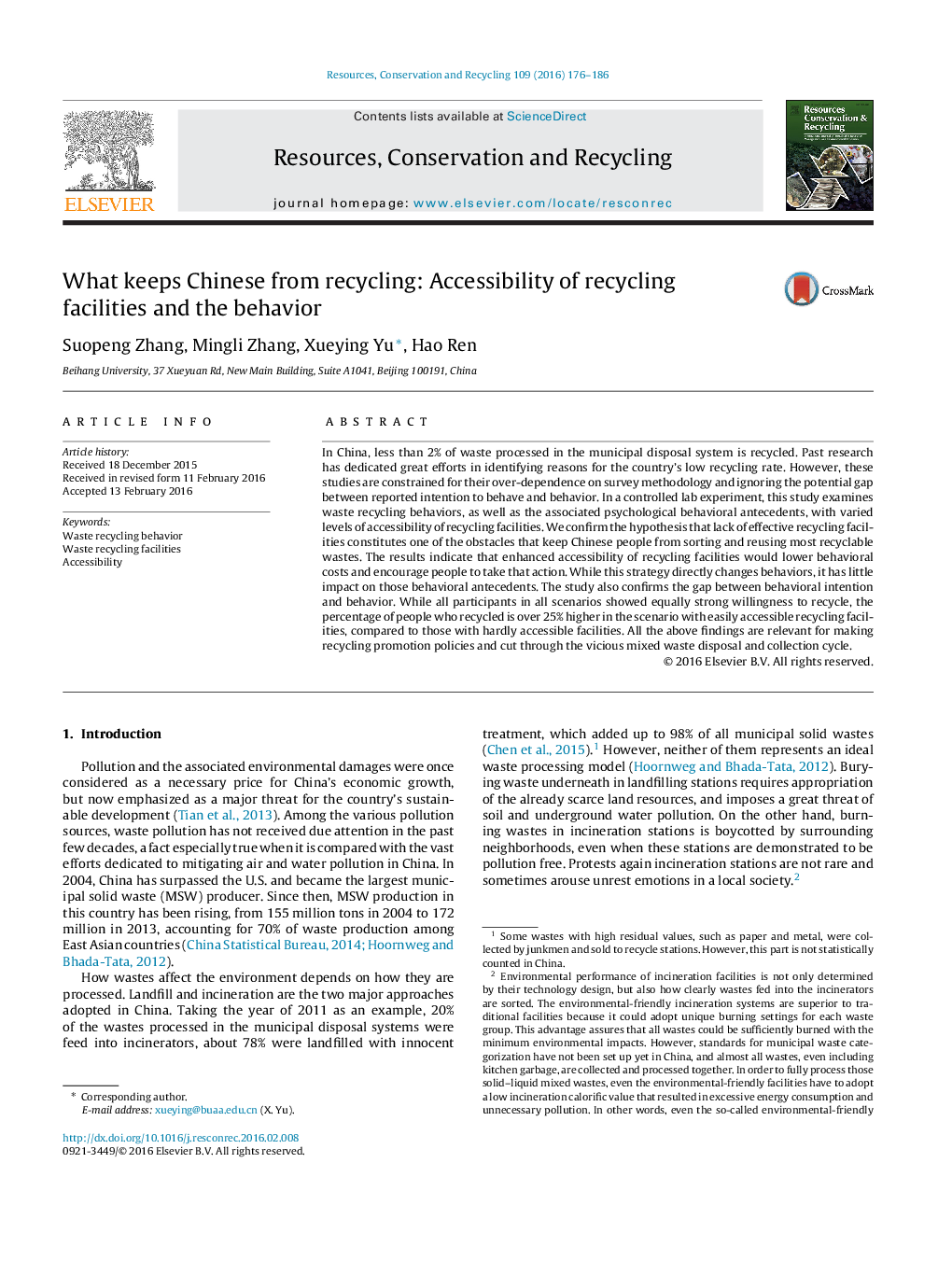| Article ID | Journal | Published Year | Pages | File Type |
|---|---|---|---|---|
| 7494949 | Resources, Conservation and Recycling | 2016 | 11 Pages |
Abstract
In China, less than 2% of waste processed in the municipal disposal system is recycled. Past research has dedicated great efforts in identifying reasons for the country's low recycling rate. However, these studies are constrained for their over-dependence on survey methodology and ignoring the potential gap between reported intention to behave and behavior. In a controlled lab experiment, this study examines waste recycling behaviors, as well as the associated psychological behavioral antecedents, with varied levels of accessibility of recycling facilities. We confirm the hypothesis that lack of effective recycling facilities constitutes one of the obstacles that keep Chinese people from sorting and reusing most recyclable wastes. The results indicate that enhanced accessibility of recycling facilities would lower behavioral costs and encourage people to take that action. While this strategy directly changes behaviors, it has little impact on those behavioral antecedents. The study also confirms the gap between behavioral intention and behavior. While all participants in all scenarios showed equally strong willingness to recycle, the percentage of people who recycled is over 25% higher in the scenario with easily accessible recycling facilities, compared to those with hardly accessible facilities. All the above findings are relevant for making recycling promotion policies and cut through the vicious mixed waste disposal and collection cycle.
Keywords
Related Topics
Physical Sciences and Engineering
Energy
Renewable Energy, Sustainability and the Environment
Authors
Suopeng Zhang, Mingli Zhang, Xueying Yu, Hao Ren,
